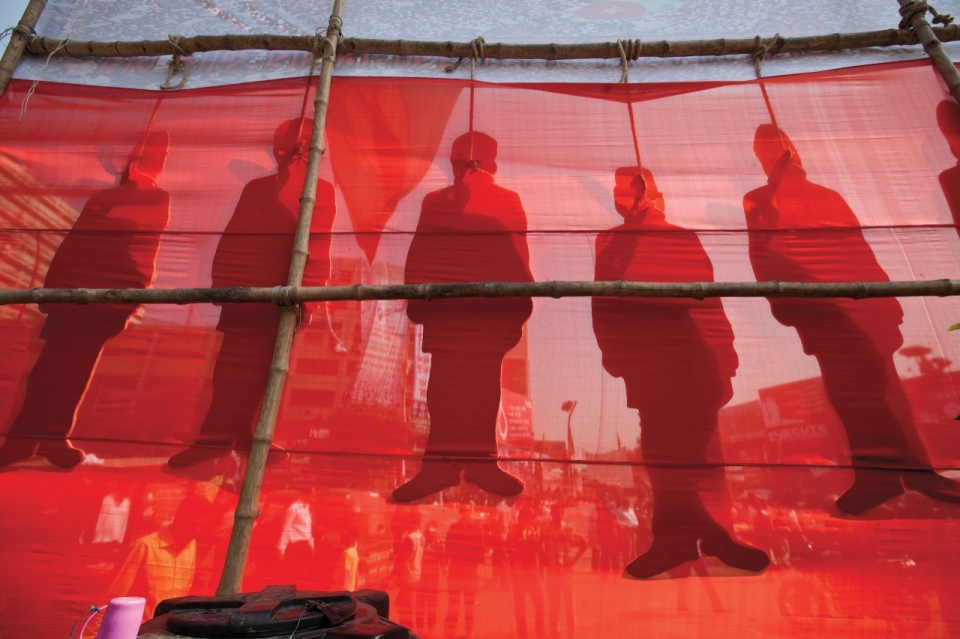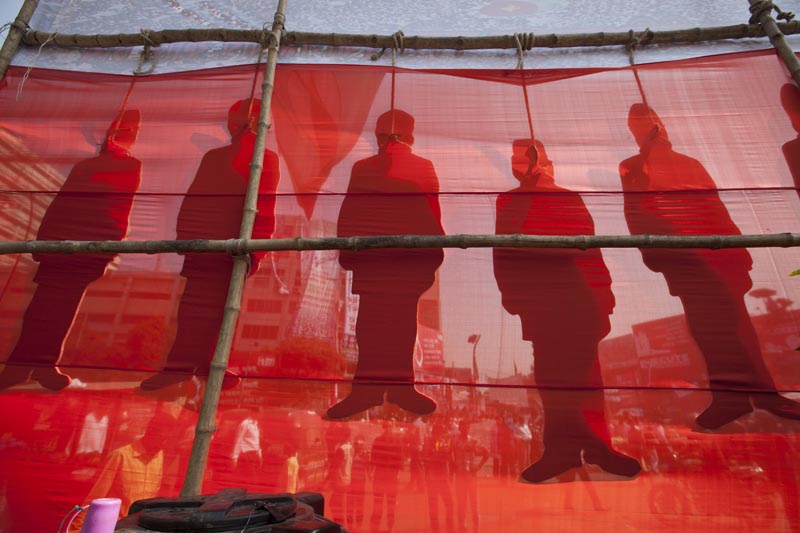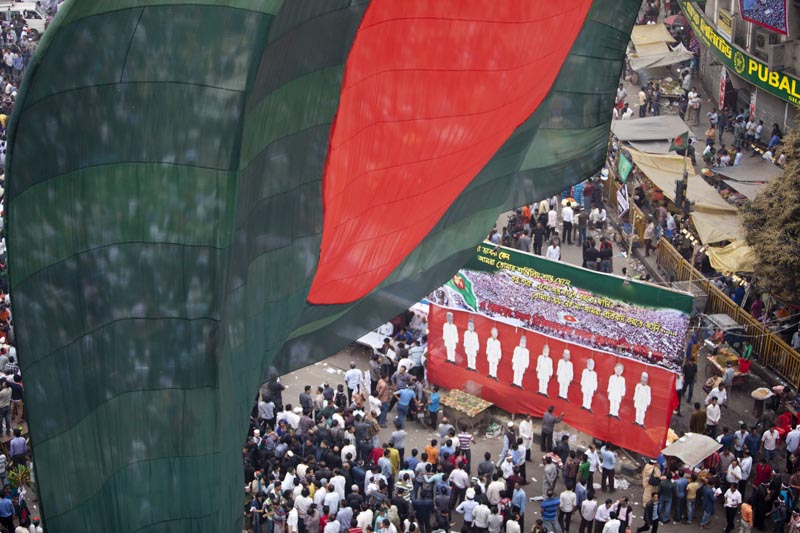By Monirul Alam
On this black night in the nation?s history, the Pakistani military rulers launched ?Operation Searchlight?, killing some thousand people in that night?s crackdown alone.?As part of the operation, tanks rolled out of Dhaka cantonment and a sleeping city woke up to the rattles of gunfire as the Pakistan army attacked the halls at Dhaka University, the then East Pakistan Rifles (now Border Guard Bangladesh) headquarters and Rajarbagh Police Lines, killing the several thousand unarmed Bengalis on the single night. The planned and designated centres of offensive operations under that plan were Dhaka, Khulna, Chittagong, Comilla, Jessore, Rajshahi, Rangpur, Saidpur and Sylhet? areas, where West Pakistani army units were concentrated. Continue reading “BLACK NIGHT 1971 Bangladesh”










